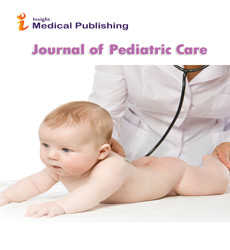Abstract
Diagnostic Values of Inflammatory Markers at Pediatric Intensive Care Unit
Background: Sepsis is a major cause of mortality and morbidity in newborns. Early diagnosis and timely use of antibiotic therapy is essential for life-threatening condition, at the Pediatric Intensive Care Unit (PICU).
Objective: The aim of this study is to determinate the values of procalcitonin (PCT) on the outcome of newborns in PICU and find out if these biomarker can be used to predict sepsis.
Methods: The study was designed as a retrospective clinical, epidemiological investigation in the period sixth months. We included 45 (M:F=25:20) newborns with two or three clinical signs of sepsis hospitalized in the PICU at the University Children’ Hospital-Skopje. The newborns have been divided into two groups: First group included 31 septic newborns with negative blood culture and second group included 14 septic newborns with positive blood cultures. A sample for blood culture, white blood cells (WBC), C-reactive protein (CRP) and PCT were taken during the first 24 hours of sign of infection, a second sample for 3-5 days, and third sample of 6-14 days. Procalcitonin was determined by immunoassay: patented ELFA (Enzyme-linked fluorescent assay) technology, automated Vidas Biomerieux immunoassay (ng/ml). CRP levels were determined by using immunoturbidimetric method Architect c4000 Abbott (mg/L). White blood cells (WBCs) were determined by using Flow citometry method on Sysmex xs 800i/1000i. The new multiplex polymerase chain reaction-based rapid diagnostic test (BioFire Film Aray Blood Culture Identification) was used for determinate blood culture.
Results: Procalcitonin PCT levels at first 24 hours of the admission were increased in all 45 newborns (≥ 2ng/mL). The values of C-reactive protein gradually increase after 12- 36 hours at admission. The values of WBC increased at 31 new borns, except in 14 new borns with severe sepsis the WBC were decreased (WBC counts<4000). The second measurement, after 3-5 days usage of an adequate antibiotic treatment, the levels of PCT were decreased, except in five new borns severe sepsis were developed, and three patients were developed septic shock. At the third measurement on 6-14 days the levels of PCT and CRP were decreased.
Conclusion: The values of inflammatory markers for sepsis are important clinical significance in predicting the prognosis of newborns with positive and negative blood cultures. Procalcitonin values are most important diagnostic and early prognostic factor for sepsis in newborns, whose values can prevent the development of severe sepsis and septic shock. It is a reliable biomarker whether an appropriate antibiotic for the treatment is used, thus increasing newborns safety, reducing costs and decreased the development of antibiotic resistance. Treatment could be surgical or non-surgical, but specialist expertise is of key importance.
Author(s):
Sofijanova Aspazija*, Bojadzieva Sonja, Shuperliska Elizabeta and Jordanova Olivera
Abstract | Full-Text | PDF
Share this

Google scholar citation report
Citations : 130
Journal of Pediatric Care received 130 citations as per google scholar report
Abstracted/Indexed in
- Google Scholar
- China National Knowledge Infrastructure (CNKI)
- Cosmos IF
- WorldCat
- Geneva Foundation for Medical Education and Research
- Secret Search Engine Labs
Open Access Journals
- Aquaculture & Veterinary Science
- Chemistry & Chemical Sciences
- Clinical Sciences
- Engineering
- General Science
- Genetics & Molecular Biology
- Health Care & Nursing
- Immunology & Microbiology
- Materials Science
- Mathematics & Physics
- Medical Sciences
- Neurology & Psychiatry
- Oncology & Cancer Science
- Pharmaceutical Sciences

